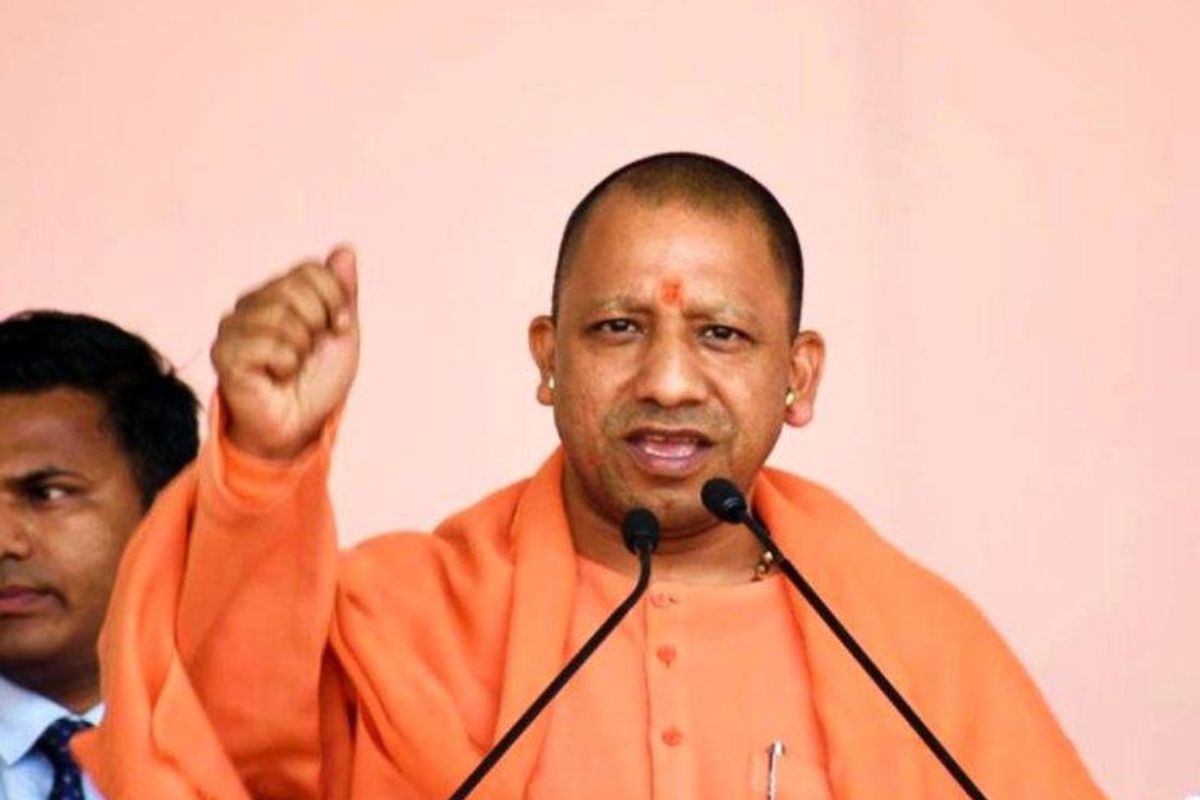Several schools in Noida receive bomb threats
Several prominent schools in Noida received bomb threats which later turned out to be hoax on Wednesday, weeks after Delhi schools were targeted in a similar manner.
The decision not only paves the way for the integration of Bundelkhand’s districts into the broader development framework but also promises to generate an abundance of employment opportunities through infrastructural enhancements.

CM Yogi (File Photo)
In a landmark move, the Uttar Pradesh Cabinet, chaired by Chief Minister Yogi Adityanath, gave its nod to the establishment of a new industrial city in Bundelkhand on Tuesday, drawing inspiration from the successful model of Noida.
The decision not only paves the way for the integration of Bundelkhand’s districts into the broader development framework but also promises to generate an abundance of employment opportunities through infrastructural enhancements.
Advertisement
It is noteworthy that in Uttar Pradesh, earlier in 1976, the decision to establish the industrial city Noida was taken, and now, after 47 years, the decision has been taken to establish a new city.
Advertisement
Following the Cabinet meeting at Lok Bhawan, Finance and Parliamentary Affairs Minister Suresh Khanna provided a comprehensive overview of the approved proposals.
He informed, “In the meeting, under the Chief Minister Industrial Area Expansion and New Industrial Area Promotion Scheme, the proposal to develop a new industrial township on the lines of Noida by the Bundelkhand Industrial Development Authority (BIDA) in Jhansi has been approved. In the first phase of the project, an industrial city will be established by acquiring 35 thousand acres of land from 33 revenue villages in Jhansi. The price of this land is Rs 6312 crore.”
Suresh Khanna stated that for the establishment of the Bundelkhand Industrial Development Authority, a provision of 5,000 crores was made by the government in the financial year 2022-23, and this year (2023-24), a provision of 5,000 crores in the form of a loan has been made under the Chief Minister Industrial Area Expansion and New Industrial Area Promotion Scheme. Of the land that will be acquired, 8,000 acres belong to the village society.
The finance minister emphasized that this is a significant step of the Yogi government. This historic decision will give accelerate the multidimensional development of Bundelkhand. The area around Jhansi will be developed on a large scale. Through this, there is a plan to develop an industrial city on a total of 14,000 hectares of land.
This industrial city is proposed on the Jhansi-Gwalior route, which will also be connected to major cities in the country through the National Highway. Besides, it will be well connected to other cities in the state through the Bundelkhand Expressway, passing through the Jalaun district from National Highway 27.
He said that the Bundelkhand Industrial Development Authority will boast of all the necessary facilities required for industrial establishments, including townships. Its formation will lead to the overall development of the area and the generation of employment on a large scale.
The general public will get employment opportunities while the region will be developed benefitting the residents directly. This step will also make a huge contribution to the development of the state. The government’s resolve to become a one trillion economy will be achieved through this.
Meanwhile, the Yogi Cabinet has also approved the proposal to implement the Aspirational City Scheme in the 100 most backward urban bodies with a population of 20,000 to 1 lakh. Under this, projects will be implemented through conversion by getting support from the government schemes currently running in these urban bodies as well as other institutions including the Central and State Government, MP, and MLA funds.
The scheme will involve the selection of 100 aspirational urban bodies from among the 762 urban bodies by NITI Aayog, based on a set of 16 parameters. This scheme will remain in force until March 31, 2026, but its monitoring will continue until March 31, 2028, through the dashboard. This scheme will help prevent migration by making ideal use of resources and increasing opportunities for economic development.
The Cabinet has also approved a proposal for the operation of AC electric buses in Saharanpur, Ayodhya, and Firozabad. It has been decided to form a new SPV under the chairmanship of the Commissioner of the concerned division under the Companies Act 2013 for the operation, management, and maintenance of electric buses in these cities.
SPV will have the right to decide the routes for running buses in cities. Apart from determining the fare on the routes, passengers will also have the right to discuss the facilities provided to them. It’s worth noting that the state currently operates a total of 740 AC electric buses through 13 SPVs in 14 cities.
Advertisement